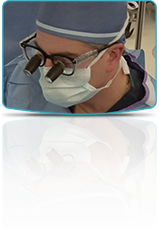How Often Should You Get a Chemical Peel?
- Saturday, 15 March 2025 12:00
- Kim
- 0 Comments

At Keystone Cosmetic Surgery Center, Dr. Robert M. Kimmel and his expert team offer advanced chemical peel treatments in a state-of-the-art, nationally accredited facility, ensuring safe and effective skin rejuvenation. With over 15 years of cosmetic experience, Dr. Kimmel provides personalized care, helping patients achieve radiant, youthful skin with professional, non-invasive treatments.
Here’s a guide for determining your peel treatment plan. Consult with a professional for more personalized information.
Types of Chemical Peels and Their Recommended Frequency
Not all chemical peels are the same. The strength of the peel plays a key role in determining how often you should schedule treatments.
- Light (Superficial) Peels – These peels, often made with glycolic or lactic acid, are gentle and require little to no downtime. They exfoliate the outermost layer of skin and can be done every two to four weeks for ongoing maintenance.
- Medium Peels – Peels containing trichloroacetic acid (TCA) or a higher concentration of glycolic acid penetrate deeper into the skin. They are ideal for treating sun damage, fine lines, and moderate discoloration. These should be every three to six months to allow proper healing.
- Deep Peels – The most intensive option, deep peels use strong acids like phenol to penetrate multiple layers of skin. They are effective for severe wrinkles and scarring but require significant downtime. Most people only need one deep peel in a lifetime or, at most, every several years.
Factors That Influence Frequency
Your skin type, concerns, and how your skin reacts to treatments all play a role in how often you should get a chemical peel. Those with sensitive skin may need more time between treatments, while those targeting acne or pigmentation may benefit from a more frequent schedule.
Get Flawless, Rejuvenated Skin with a Chemical Peel in Pottsville, PA
For the best results, consult a professional to determine your skin type’s ideal peel and frequency. Following a proper post-peel skincare routine, including hydration and sun protection, will help maintain the benefits of your treatment.
Would you like a personalized recommendation? Call us today at 570-622-2900 to schedule a consultation and create the best chemical peel plan for you!





